Main Content
IIGE Team

Sanjay Vuppugandla, Web Developer

Maria Babko, Program Coordinator
IIGE Faculty
The Institute for Innovation and Global Engagement (IIGE) draws on the expertise of faculty from different disciplines and academic programs throughout UW Tacoma.
Faculty who currently teach IIGE courses include:
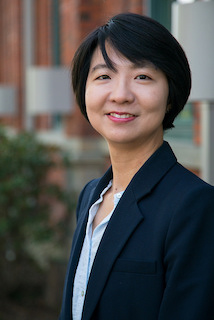
Associate Professor, School of Interdisciplinary Arts & Sciences
Ji-Hyun Ahn PhD specializes in media globalization, Korean television and popular culture, Asian multiculturalism and critical mixed-race studies. She is particularly interested in examining how media practices have facilitated re-imagination of national identity from a global media perspective. Her ultimate goal is to understand how racial projects in what once were racially homogenous countries in Asia, including South Korea, are differently structured and articulated through the televisual media in comparison to the West. This research topic is particularly significant in that race has been rarely discussed in the globalization process especially in Asia for nationality, rather than race and ethnicity, has been a preferred marker of difference in the Asian context.
Dr. Ahn teaches TGH 302: Global Imaginations (Winter 2025), part of the Global Honors program and Minor in Global Engagement.
Assistant Professor, School of Interdisciplinary Arts and Sciences
Gordon Barnes, PhD's doctoral research examined elite racial and political ideologies in the British Empire during the transitions from slave labor to waged labor, specifically in Jamaica and Mauritius. His more recent research centers on Maroon communities in Jamaica and their role as both freedom fighters from, and later, adjuncts to the British imperial state.
His broader teaching and research interests center on histories of diaspora in the Americas, subaltern political formations, social struggle and revolution, and histories of racial ideology.
Dr. Barnes teaches TGH 301: Global Interactions (Autumn 2024), part of the Global Honors program and Minor in Global Engagement.
Lecturer, School of Interdisciplinary Arts & Sciences
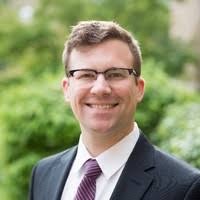
James Breen, PhD is an intellectual and cultural historian of post-Reconstruction America, whose research and teaching specialties include working-class political movements, capitalism, religion, and conspiratorial thinking.
His scholarship examines how conspiratorial religious, ethnic, and racial hatreds influenced dominant ideas about U.S. labor and capitalism in the long twentieth century. His doctoral dissertation focused on the American Protective Association (A.P.A.), a popular anti-Catholic organization with two-plus million members in the 1890s. He argued that the A.P.A. emerged from and played a crucial role within the largest economic reform movement of the American Gilded Age: the antimonopoly movement. He ultimately demonstrated that a conspiratorial anti-Catholicism fragmented the working class in ways that historians have not yet acknowledged.
Dr. Breen teaches TGH 203: Themes in Global Honors (Spring 2025), part of the Global Honors program and Minor in Global Engagement.
Associate Teaching Professor, School of Interdisciplinary Arts and Sciences
Tyler Budge, MFA is an artist who works primarily in sculpture, site-specific installation, kinetics and video projection. His works reference metaphors represented by objects or images to autobiographically address personal experience. His art has explored issues of infertility, site displacement, reconciliation with self and the constructs of gender.
Professor Budge teaches TGH 302: Global Imaginations (Spring 2025), part of the Global Honors program and Minor in Global Engagement.
Associate Professor, School of Interdisciplinary Arts & Sciences

Alison Cardinal, PhD's scholarly expertise lies at the intersection of language justice, technical communication, and content design. In all her work, she is committed to language justice approaches in her scholarship, community-based work, and teaching. Language justice asserts that all people should be able to fully and equitably participate in our communities and access services in their preferred language. Language justice fosters cultural vitality, autonomy, and dignity by allowing people to communicate without being stigmatized. Her work seeks to develop and practice ways of decentering English as the default way of speaking and communicating in our institutions to work towards equity for multilingual communities. Her approach to language justice comes from a technical communication angle. Drawing on approaches from UX (user experience), her work uses a human-centered design approach to create and share knowledge in both scholarly and community spaces.
One of her main area of expertise is in research methods, especially approaches that use participatory research methods. Through these types of approaches, researchers collaborate with research participants to create knowledge and work together to collect and share what they find. Her recent research in this area has focused on the use of participatory video, where participants film their own environments, to research multilingual communities and their language and literacy practices.
Dr. Cardinal teaches TGID 320: Innovation & Design Studio (Spring 2025), part of the Minor in Innovation and Design.
Associate Teaching Professor, School of Interdisciplinary Arts and Sciences
Leighann Chaffee, MA is a teacher-scientist who uses the lens of biopsychology to better understand motivated behaviors and well-being. As a student, her studies in biopsychology focused on neuroscience and behavior, as she stud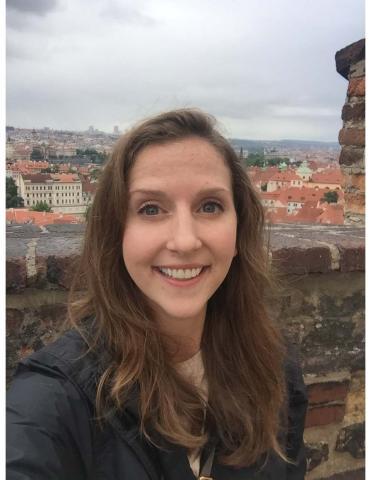 ied the biological basis of stress and feeding behavior. She has conducted empirical studies utilizing electrophysiological and behavioral neuroscience methods, in both human and animal models. Her current research in the biopsychology of eating is student-hypothesis driven and emphasizes aspects of food decision-making that are often overlooked in traditional research on health.
ied the biological basis of stress and feeding behavior. She has conducted empirical studies utilizing electrophysiological and behavioral neuroscience methods, in both human and animal models. Her current research in the biopsychology of eating is student-hypothesis driven and emphasizes aspects of food decision-making that are often overlooked in traditional research on health.
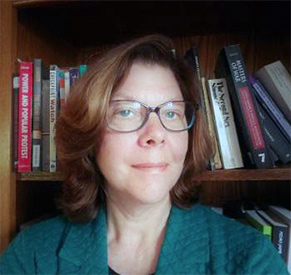
Teaching Professor, School of Interdisciplinary Arts and Sciences
Specialty: International Education, Social Movements, Violence Against Women in Latin America (especially Brazil)
Margaret Griesse, PhD's main areas of research include social movements in Latin America, with a focus on Brazil; transversal and transnational studies on gender; and social responsibility within emerging nations. During the summer, she takes students on a Brazil study abroad program.
Dr. Barnes teaches TGH 301: Global Interactions (Winter 2024), part of the Global Honors program and Minor in Global Engagement.
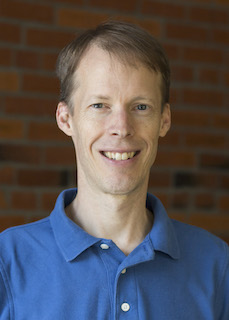
Specialty: Public Policy, Environmental Policy, Community-Based Natural Resources Management, Integration of Social and Environmental Sciences
Tom Koontz, PhD grew up in Kitsap county and completed his bachelor's degree at the University of Puget Sound, before heading east to pursue graduate work at Indiana University in Public Policy. His interdisciplinary graduate studies focused on environmental policy as it relates to human systems including institutions, stakeholder participation and community-based natural resource management, as well as natural systems such as forests, watersheds and the global climate. As a research assistant with the International Forestry Resources and Institutions program, he collaborated with international scholars examining the ecological and sociopolitical aspects of community-based natural resource management and coupled human and natural systems.
In 1998 Dr. Koontz joined the faculty at Ohio State University in the interdisciplinary School of Environment and Natural Resources. Working with colleagues and students, he conducted research on collaborative environmental management, forest policy, watershed management and related environmental and natural resources policy topics. As one of the few social scientists in an environmental science program, he enjoyed helping students to integrate across disciplines and see the critical role of social science in solving environmental challenges.
In 2011 Dr. Koontz spent a half-year sabbatical at Leuphana University in Germany, where he taught and researched in the sustainability program. This provided an opportunity to compare collaboration and water policy between the European Union and the U.S. In 2014 he returned to his home state of Washington to join UW Tacoma in its environmental science, environmental studies, and sustainability efforts.
Dr. Koontz teaches TGH 303: Global Challenges (Autumn 2024), part of the Global Honors program and Minor in Global Engagement.

Associate Professor, School of Interdisciplinary Arts & Sciences
Specialty: Political Science, International Law, Armed Conflict and Genocide, Rhetorical Strategy
Benjamin Meiches, PhD's research and teaching focus on global politics. He is particularly interested in armed conflict, genocide, and the development of international law. He teach classes about political violence, human rights, and international theory.
Dr. Meiches' research focuses on armed conflict, genocide, and international law. He is particularly interested in how the categories, concepts and practices of contemporary violence evolved and developed over time. I is also invested in debates about contemporary political theory. He is currently working on a history of the emergence of international law and political discourse surrounding genocide.
Dr. Meiches teaches TGH 490: Research Methods Seminar (Autumn 2024) and TGH 491: Thesis Symposium (Spring 2025), part of the Global Honors program and Minor in Global Engagement.
Associate Professor, School of Interdisciplinary Arts & Sciences
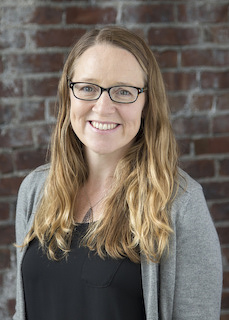
Emma Rose, PhD's research is motivated by a commitment to design for digital inclusion. Designing for information and communication technologies (ICTs) in developing countries and for poor communities in developed countries presents unique challenges. In these settings, people have limited access to a variety of resources which result in challenges in daily life. Constraints in these settings include infrastructure, technology and economics. She investigates how existing methodologies and design approaches can and should be expanded to accommodate the growing diversity of people using technology. Specifically, she focuses on understanding people's needs and practices using methodologies that are contextual and participatory.
Within the field of technical communication, her area of expertise is in usability and user-centered design. Prior to her academic career, she worked as a user experience consultant and web designer where she spent over a decade designing, researching and adapting designs to meet the needs of a variety of users. This experience in industry gives her research and teaching an applied and practical approach.
Dr. Rose teaches TWRT 350: Principles of User Centered Design (Autumn 2024, Winter 2025) and TGID 420: Reflexive Design Portfolio (Spring 2025), part of the Minor in Innovation and Design.
Professor, School of Urban Studies
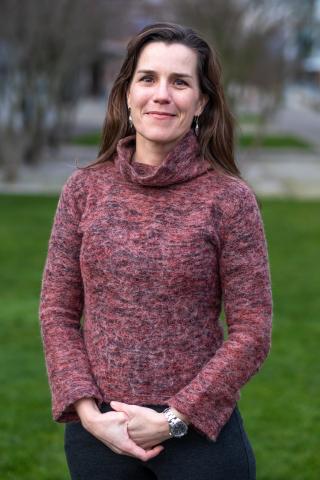
Anne Taufen, PhD is an interdisciplinary policy and planning scholar who specializes in interpretive methodology, applied teaching and research, and regional community development. Her published research focuses on equitable governance, port city infrastructures, and the social-ecological networks of urban regions.
Dr. Taufen teaches in the Urban Studies, Sustainable Urban Development (SUD), and Global Honors (GH) undergraduate progra
ms; and in the Community Planning (MACP) graduate program. Her teaching connects governance and development concepts to evidence and experience from local sites and empirical case material, utilizing a variety of pedagogical strategies to develop student competencies in comprehension, analysis, comparative work, communication, and strategic action.
Dr. Taufen teaches TGH 203: Themes in Global Honors (Autumn 2024), part of the Global Honors program and Minor in Global Engagement.






